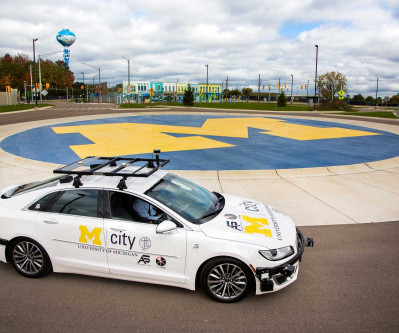DOT awards U-M-led hub $15M for connected and automated transportation
Green Car Congress
MARCH 1, 2023
The US Department of Transportation has awarded a $15-million grant to renew the Center for Connected and Automated Transportation (CCAT), based in Ann Arbor and led by the University of Michigan. million over its first six years, CCAT is one of 10 regional USDOT University Transportation Centers nationwide.



















Let's personalize your content